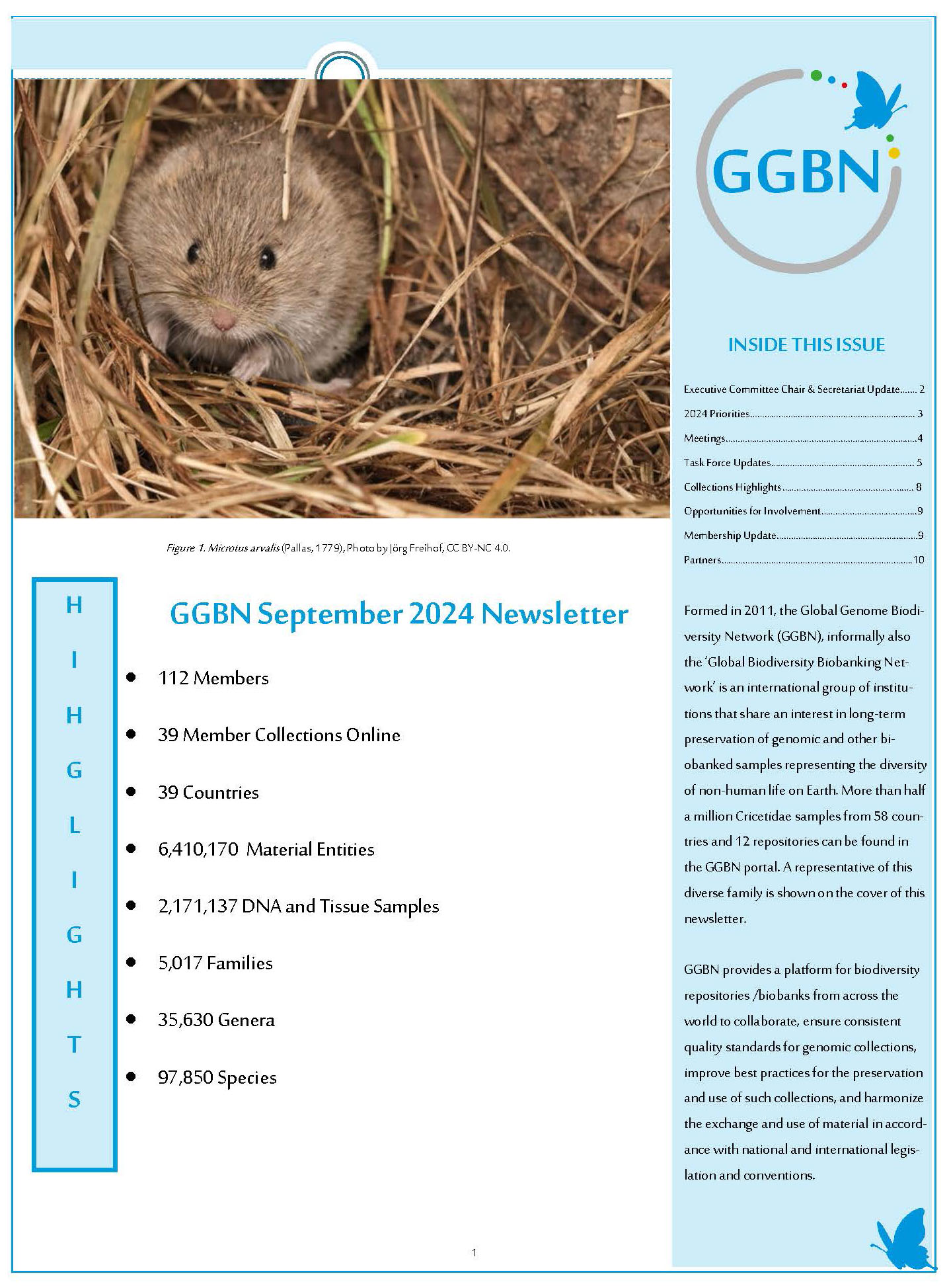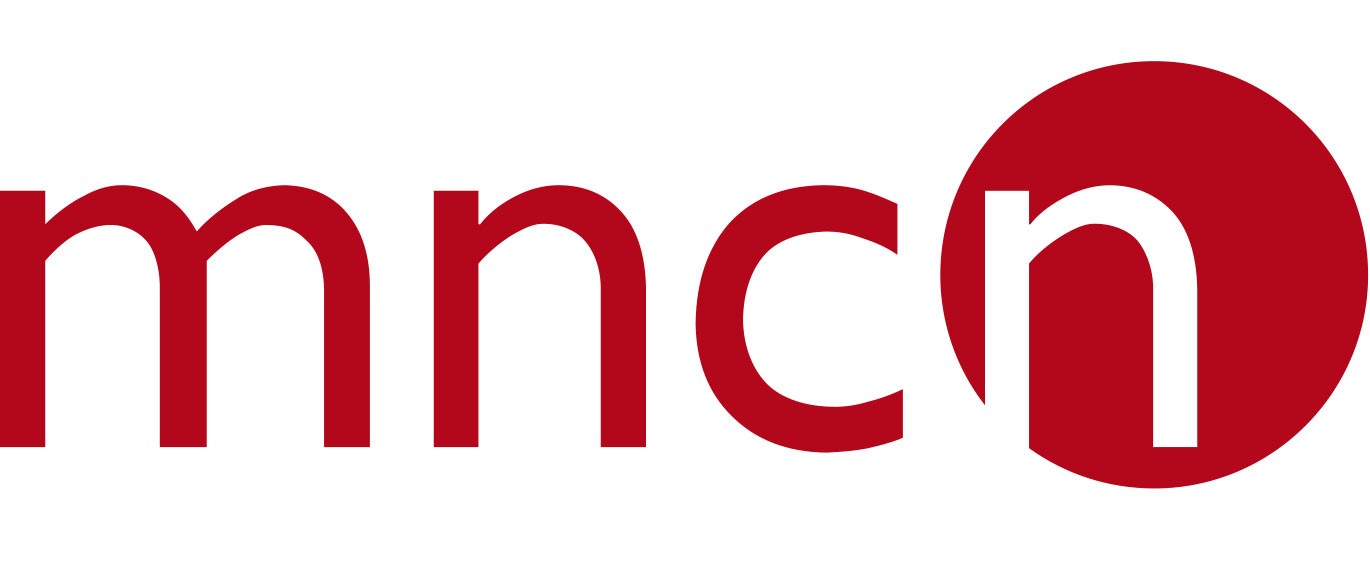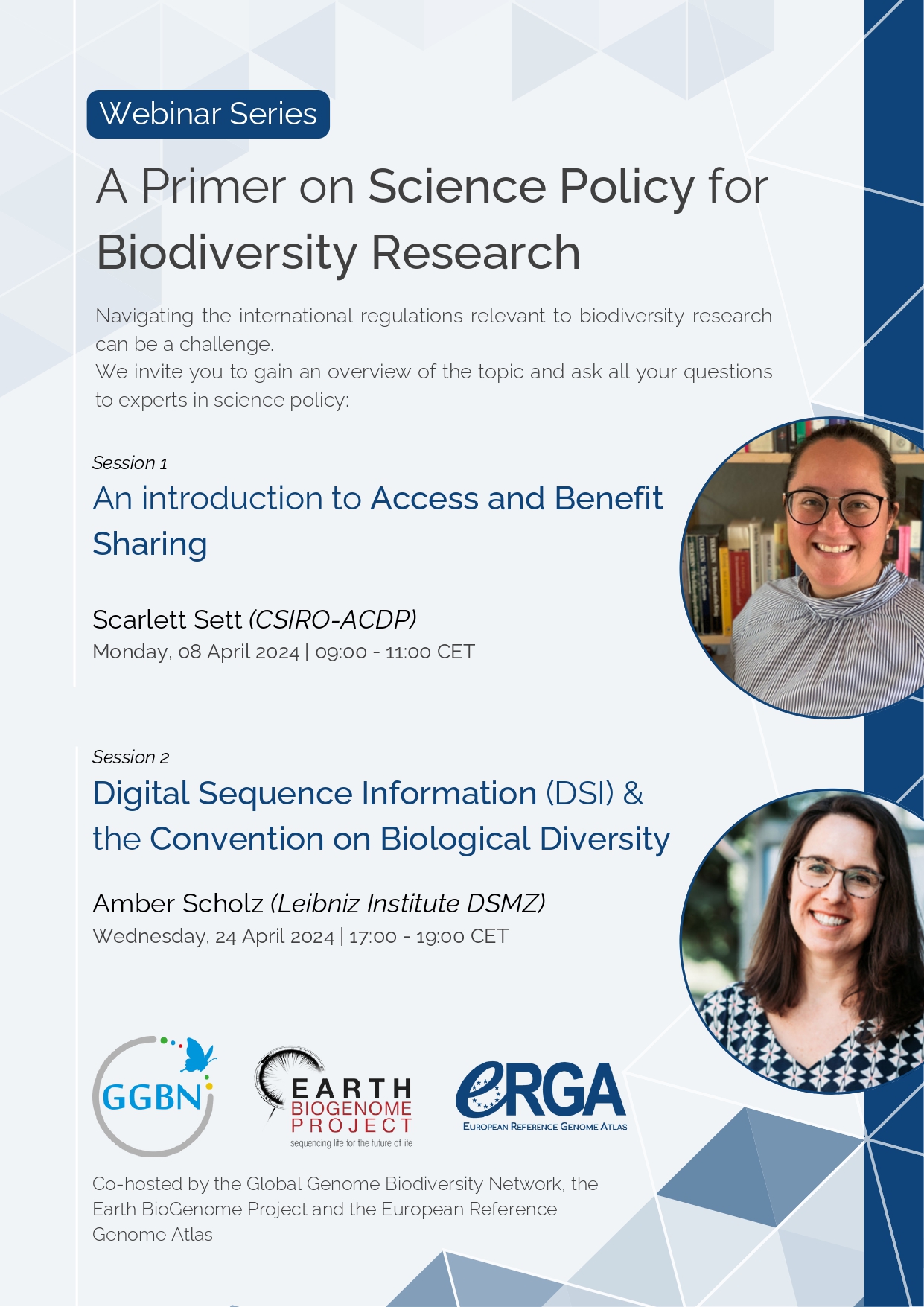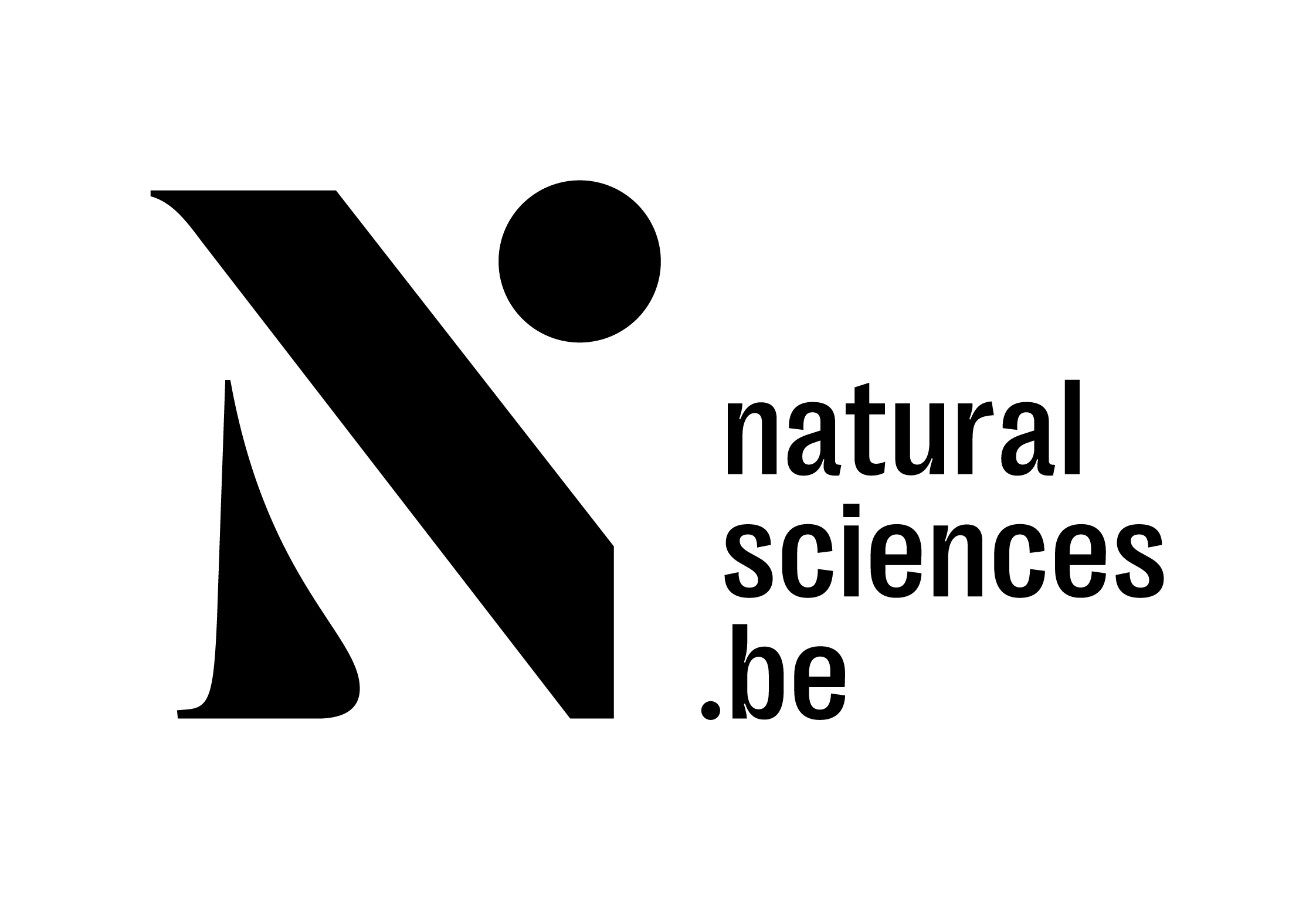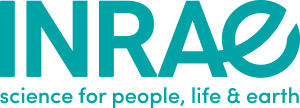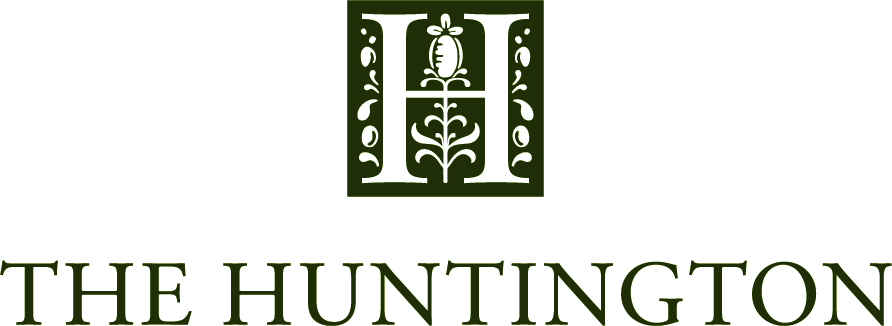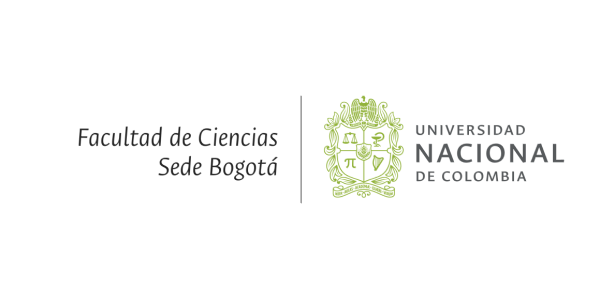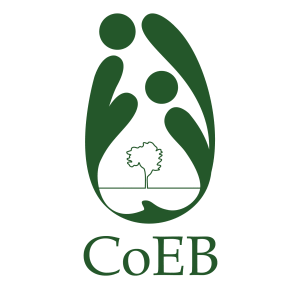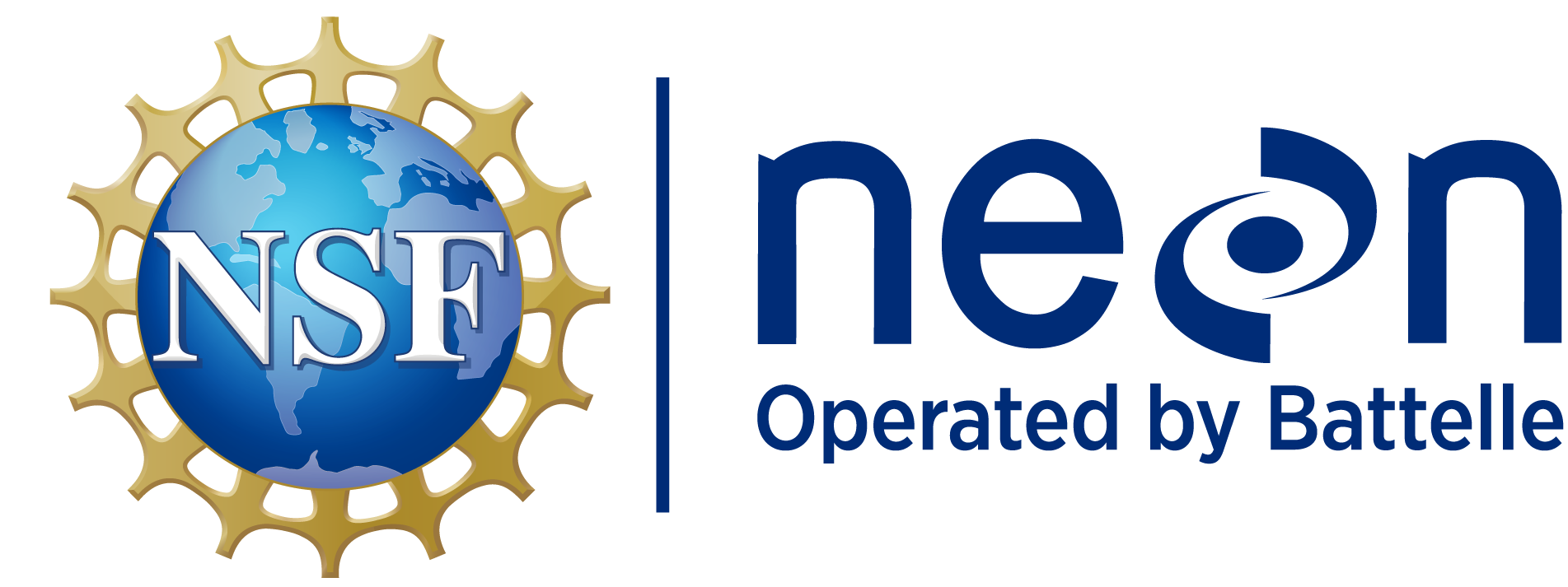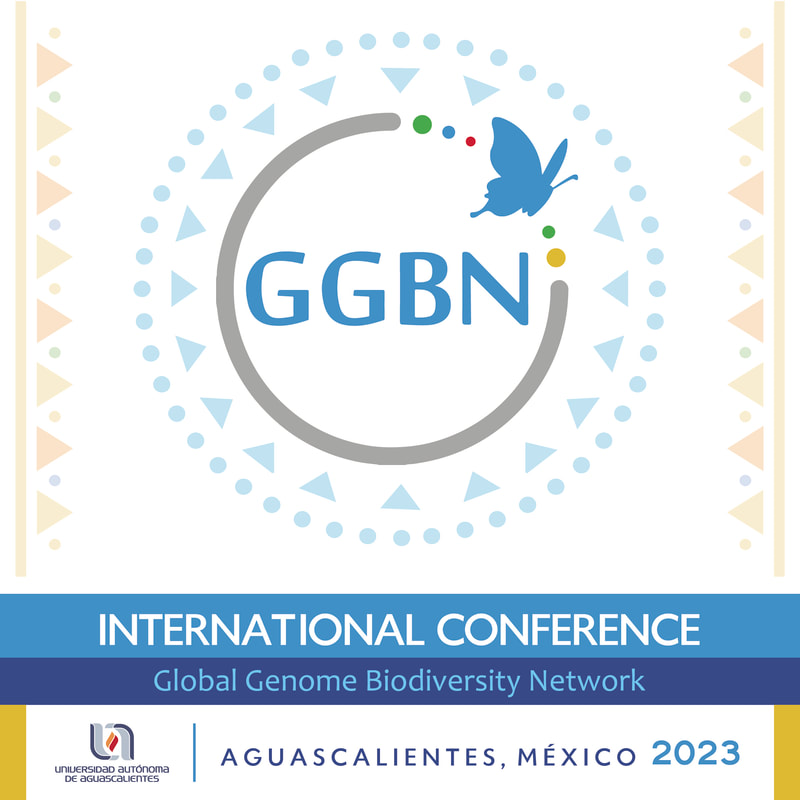|
|
| (276 intermediate revisions by 6 users not shown) |
| Line 1: |
Line 1: |
| − | =02 October 2019-Museum of Southwestern Biology makes genetic collections discoverable= | + | ==October 30 2024 The Earth BioGenome Project has updated their guidances for Sample Collection and Processing! == |
| | | | |
| − | We are proud to announce that the first [https://arctos.database.museum/home.cfm Arctos] partner, the [http://www.msb.unm.edu/ Museum of Southwestern Biology], University of New Mexico/US has made a subset of its genetic collections discoverable through GGBN as part of the 2017-2018 GGBN-GGI awards program. The online collection includes more than 580,000 vertebrate tissues representing mostly mammals and more than 200,000 associated specimen data. The collection adds 100 new families, 400 new genera and 1,000 species to the GGBN Data Portal.
| + | The Earth BioGenome Project (EBP) Sample Collection and Processing subcommittee has updated their guidance on all things you need to think about when collecting and preparing specimens that will be used to generate high quality reference genomes. Check it out [https://library.ggbn.org/share/s/y2ovOIbJSIqkg22e1nt1Bg here!] |
| | | | |
| − | More Arctos partners will be making their genetic collections discoverable in the upcoming weeks.
| + | ==October 15 2024 Universidad Autónoma de Aguascalientes publishes data through GGBN!== |
| | | | |
| − | [[File:MSB logo.jpg|center|300px]] | + | We are excited to announce that Universidad Autónoma de Aguascalientes (UAA) has published data for the first time through GGBN! There are 2,000 botanical DNA and tissue samples collected in Central Mexico now available online. Check it out [https://www.ggbn.org/ggbn_portal/search/result?institution=UAA%2C+Aguascalientes here]! |
| | | | |
| | + | ==October 9 2024 The slides from the SPNHC-TDWG 2024 Conference are now available! == |
| | | | |
| − | =13 September 2019-University of Torino joins GGBN=
| + | Slides from the SPNHC-TDWG 2024 Conference session on "Biodiversity Biobanking Network GGBN: A global infrastructure for molecular collections" are now available on the GGBN document library. Check it out [https://library.ggbn.org/share/s/sLmM-4MXQ2mkSsasxojhZA now]! |
| | | | |
| − | We are pleased to announce that the [https://en.unito.it/ University of Torino] has joined GGBN as part of the 2019 GGBN-GGI awards program. The collection comprises 2234 specimens representing approximately 120 families, 376 genera and 589 species of mainly Western Palearctic species. Genetic samples will be made discoverable through GGBN by September 2020.
| + | ==October 9 2024 The 2024 GGBN Newsletter is now available! == |
| | | | |
| − | [[File:UnivTorino.png|center|300px]] | + | We are excited share the latest edition of the GGBN Newsletter is now available! Within the 2024 GGBN newsletter you'll find all the highlights, updates, and events that have shaped our community over the past year. We hope you enjoy this [https://library.ggbn.org/share/s/HCsKPlHXQBaSD18NmEZNqg newsletter]! |
| | | | |
| − | =11 September 2019-GGBN 2020 Conference: At-a-glance agenda, session topics, invited speakers and travel logistics=
| + | [[File:GGBN_Sep2024_Newsletter.jpg|center|350px]] |
| | | | |
| − | The GGBN 2020 [https://meetings.ggbn.org/conference/ggbn/ggbn2020/about/organizingTeam organizing committee] is happy to announce updates to the GGBN 2020 [https://meetings.ggbn.org/conference/ggbn/ggbn2020/index conference webpage] to include the at-a-glance agenda, theme and session topics, invited speakers, travel logistics and accommodations. Early bird registration and abstract submission will open November 1st.
| + | ==September 5 2024 Museo Nacional de Ciencias Naturales joins GGBN! == |
| | | | |
| − | =15 July 2019-Chicago Botanic Garden joins GGBN=
| + | We are pleased to announce Museo Nacional de Ciencias Naturales (MNCN) has joined GGBN! Museo Nacional de Ciencias Naturales is located in Madrid, Spain. |
| | | | |
| − | We are pleased to announce that the [https://www.chicagobotanic.org/ Chicago Botanic Garden] has joined GGBN as part of the [https://ggi.si.edu/ggi-gardens GGI Gardens Program], an effort to enhance global plant collections by strategically collecting and preserving genome-quality samples representing global plant diversity. The Chicago Botanic Garden's collection comprises 13,286 samples representing approximately 5,000 plant species, a subset of which will be made discoverable through GGBN by August 2020.
| + | [[File:Logo_mncn_2024.jpg|center|350px]] |
| | | | |
| − |
| + | ==April 30 2024 GGBN and ERGA Webinar Series on Science Policy for Biodiversity Research on Youtube== |
| − | [[File:Cbg_logo_1.jpg|center|300px]]
| |
| | | | |
| − | =11 July 2019-GGBN 2020 Conference ''Widening GGBN’s Horizon – engaging new users and collections''=
| + | Both parts of the GGBN, the European Reference Genome Atlas (ERGA) and the Earth BioGenome Project (EBP) series focused on ABS - Nagoya Protocol and DSI are now uploaded on YouTube! Check it out [https://www.youtube.com/playlist?list=PL4qmCfIUT9K-cgswMIZdd89p3ZUhol-OH here]! |
| | | | |
| − | GGBN 2020, the 4th Conference of the Global Genome Biodiversity Network, will take place in Shenzhen, China from May 11-15. We are putting together an exciting program on topics surrounding the main theme of Widening GGBN’s Horizon – engaging new users and collections.
| + | [[File:Youtube-logo-2431.png|center|350px]] |
| | | | |
| − | Sessions on the following topics are planned:
| + | ==March 25 2024 GGBN and ERGA Hosts a Webinar Series on Science Policy for Biodiversity Research == |
| − | *Regional Biobanks (Asia-Pacific)
| |
| − | *Biodiversity Biobank Collections (from vertebrates to microbes)
| |
| − | *Frontiers in Biobanking Collections: Sampling and Preservation
| |
| − | *Biodiversity Biobank Data and Analytics
| |
| − | *Culture Collections
| |
| − | *Environmental Specimens
| |
| − | *Crop Relatives and Medicinal Plant Diversity
| |
| − | *Large Scale Genomic Initiatives and GGBN
| |
| − | *Nagoya Protocol
| |
| | | | |
| − | Invited speakers will be announced on the GGBN website this fall. We invite participants to submit abstracts for oral and poster presentations through the GGBN 2020 Conference registration system starting in November 2019.
| + | We're happy to announce that GGBN and European Reference Genome Atlas (ERGA) with the support of Digital Sequence Information (DSI) network are organizing a two-part webinar series focused on ABS (Access and Benefit Sharing), the Nagoya Protocol and DSI this April. Join us by filling the registration form [https://www.cognitoforms.com/ERGAEuropeanReferenceGenomeAtlas/APrimerOnSciencePolicyForBiodiversityResearchWebinarSeries here]! Spots are limited. |
| | | | |
| − | Organizing Committee:
| + | [[File:ERGA_GGBN_Webinar-3_page-0001.jpg|center|350px]] |
| − | *Jonas Astrin, Zoological Research Museum-Koenig/Germany
| |
| − | *Katie Barker, GGBN Secretariat, National Museum of Natural History, Smithsonian/US
| |
| − | *Jason Chen, Beijing Genomics Institute, China National GeneBank/China
| |
| − | *Manuela da Silva, FIOCRUZ/Brazil
| |
| − | *Gabi Droege, GGBN Technical Secretariat, Berlin Botanic Garden/Germany
| |
| − | *Meiliang Zhou, China Biodiversity Conservation and Green Development Foundation/China
| |
| − | *Sarah Tassell, Manaaki Whenua-Landcare Research/New Zealand
| |
| − | *Thai Pham, Vietnam National Museum of Nature/Vietnam
| |
| | | | |
| − | [[File:GGBN 2020 draft agenda .jpg|center|800px]]
| + | ==February 1 2024 Royal Belgian Institute of Natural Sciences joins GGBN! == |
| | | | |
| − | =09 July 2019-Upcoming Regional Workshop in Tbilisi (November 4-7 2019)=
| + | We are pleased to announce the Royal Belgian Institute of Natural Sciences (RBINS) has joined GGBN! Located in Brussels, Belgium, the Royal Belgian Institute of Natural Sciences has 6,000 DNA samples, 6,500 tissue samples, and 38,000 specimens in their collections. |
| | | | |
| − | Workshop Title: New Horizons for Conserving and Restoring Biodiversity in Gene Banks and Regional Cooperation
| + | [[File:RBINS_logo_complet_(2).jpg|center|350px]] |
| − | *Location: Tbilisi, Georgia
| |
| − | *Host: The Association for Farmers Rights Defense, AFRD
| |
| | | | |
| − | The Workshop will provide a platform for discussion on the following key themes:
| + | ==January 4 2024 2023 SYNTHESYS Biobanking Handbooks are Now Available! == |
| − | * Recent country experience and efforts on mainstreaming biodiversity conservation, ex-situ, in situ into Gene Bank development
| |
| − | * Approaches and partnerships to mainstream National Gene Bank cooperation at Post Soviet and Eastern European, Central European sectoral levels
| |
| − | * Insights, challenges, and opportunities to manage for better results harmonizing GGBN Methodologies, Measurements, and Taxonomy Data
| |
| | | | |
| − | Program:
| + | The fourth (and last) publication of the GGBN-led SYNTHESYS+ work package NA3: "Molecular collections in the age of genomics – standards & |
| − | *Day 1, 04.11.2019 Plenary session
| + | processes" has been released! They are now posted to the GGBN Document Library. Click [https://library.ggbn.org/share/s/Ijs5AFkCSFquS7vZW96KMg here] to take a look! |
| | + | [[File:Synthesys-plus-logo.png|center|350px]] |
| | | | |
| − | *Day 2, 05.11.2019 Working Groups
| + | ==January 4 2024 2023 GGBN Report Now Available! == |
| | | | |
| − | *Day 3, 06.11.2019 Working Groups
| + | We are excited to announce that the GGBN December 2023 Report is now available! This report highlights GGBN contributions, conferences, online discoverability and more from the past year. Head to the [https://library.ggbn.org/share/s/YKaykzh2QD-q2yByCgMJqw GGBN Document Library] to take a look! |
| | | | |
| − | *Day 4, 07.11.2019 Excursions
| + | ==December 7 2023 Tissue Samples Made Discoverable Through GGBN== |
| | | | |
| | + | We are excited to announce the organizations who provided data for the first time in 2023: CMN, Ottawa, Canadian Museum of Nature, INRAE, Paris, National Institute of Research for Agriculture, Food and Environment, HNT, San Marino, The Huntington, and UNAL, Bogota, Universidad Nacional de Colombia / National University of Colombia. |
| | | | |
| − | Outcomes:
| + | [[File:CMN.png|center|350px]] [[File:INRAE.jpg|center|350px]] [[File:HTG logo.jpg|center|350px]] [[File:UNAL logo 600x300.png|center|350px]] |
| − | The workshop is expected to guide the development of the International Initiative for the Conservation and Sustainable Use of Biodiversity's modern conservation methods and the cooperation and networking of Gene Banks.
| |
| − | The results of the workshop should be disseminated and taken up and promoted by concerned stakeholders in such a way that they are ultimately reflected in the Genetic Resource management practices for both developed and developing countries. The overall aim is to help improve the cooperation of scientific and research communities and achieve truly sustainable use of Genetic Resources that is environmentally sound and economically viable.
| |
| | | | |
| | + | ==December 6 2023 National Herbarium of Rwanda, University of Rwanda joins GGBN == |
| | | | |
| | + | We are happy to announce that the National Herbarium of Rwanda[https://herbariumrwanda.ur.ac.rw/] at the University of Rwanda has joined GGBN. Collections include 50 eDNA and 20,000+ tissue samples representing plants, terrestrial invertebrates, and vertebrates. Samples are managed with Symbiota and Excel. |
| | | | |
| − | Please contact Dr. Kakha Nadiradze (nadiradzekakha@gmail.com) and GGBN (GGBN@si.edu) by July 20th to express your interest in participating.
| + | [[File:Herbarium of Rwanda.png|center|350px]] |
| | | | |
| − | =08 July 2019-University of Karachi joins GGBN= | + | ==The GGBN 2023 International Conference Presentations are Available to Watch on YouTube== |
| − | We are pleased to announce that the [http://www.uok.edu.pk/research_institutes/cpc/index.php University of Karachi, Center for Plant Conservation] has joined GGBN as part of the GGBN-GGI 2019 Awards Program. The awarded project will publish 1,000 samples from across Pakistan representing a diversity of biotic communities and relatively rich flora.
| |
| | | | |
| − | [[File:Karachi_University_logo.png|center|200px]] | + | The 2023 GGBN International Conference presentations are now available to watch on our YouTube page [https://www.youtube.com/watch?v=NfOFuKPmJMQ&list=PLxCMSf8YBiw8RZX6q-_cs-y0nM103_-Is here]! Check out some of the amazing talks from the conference! |
| | + | [[File:Youtube-logo-2431.png|center|350px]] |
| | | | |
| − | =01 July 2019-Job Advertisement-Cell Culture Specialist-Zoological Research Museum A. Koenig= | + | ==November 06 2023 GGBN 2023 GGBN Announces 2025 Conference Host== |
| − | The Biobank at Zoological Research Museum A. Koenig in Bonn, Germany, is looking for a full-time cell culture specialist. The position can be filled immediately and is funded for three years within the project "Forensic Genetics for Species Protection", aimed at protecting endangered animals. Tasks include:
| + | We are happy to announce the South African National Biodiversity Institute and Biodiversity Biobanks South Africa as the host for the 2025 GGBN Conference in Cape Town, South Africa! Learn more about the institute [https://www.sanbi.org/ here] |
| − | *Establishing cell cultures and cryopreservation
| |
| − | *Developing methods and coordination of lab workflows, especially for cell culture; data analyses
| |
| − | *Management of the cell culture lab; responsible for instruments
| |
| − | *Handling biobank samples (incl. DNA, tissue): documentation, databasing, preparation, preservation
| |
| − | *Sample acquisition & research: international correspondence on samples; organizing logistics
| |
| − | *Supervision of research assistants, students, and interns
| |
| − | Your profile:
| |
| − | *Extensive, documented hands-on experience in the cell culture lab (ideally, but not necessarily with animals)
| |
| − | *Finished vocational training or university degree in life sciences
| |
| − | *Capacity to organize and manage molecular infrastructures and projects
| |
| − | *Good IT skills (esp. with spreadsheets, database knowledge)
| |
| − | *Fair knowledge of the English language for international correspondence etc.
| |
| − | *High interpersonal skills; most meticulous and responsible, proactive way of working; competent at problem-solving
| |
| | | | |
| − | ZFMK offers a highly motivating environment at a renowned and pioneering research facility and the possibility to work independently. Salary and benefits are according to a public service position in Germany, TV-L E 9.
| + | [[File:Large SANBI Logo new.jpg|center|350px]] |
| | | | |
| − | Equally qualified severely disabled applicants will be given preference.
| + | ==October 16 2023 GGBN 2023 Conference Program Available Now== |
| | | | |
| − | Please send your application by e-mail attachment, including a detailed CV, until July 19, 2019 to Mrs. Heike Lenz: h.lenz@leibniz-zfmk.de. In case of questions concerning the position please contact Jonas Astrin: j.astrin@leibniz-zfmk.de, tel. +49-228-9122 357.
| + | The 2023 GGBN International Conference program is now available to view [https://ggbn2023.weebly.com/conference-program.html here]! Click to see presentation details, recommendations to do during your stay in Aguascalientes (if in person) and more. |
| | | | |
| − | For more information about ZFMK see http://www.leibniz-zfmk.de/en
| + | ==September 7 2023 Hybrid Registration for 2023 GGBN International Conference Available Now== |
| | | | |
| − | =18 June 2019-The University of California, CALeDNA Program joins GGBN=
| + | The 2023 GGBN International Conference will now be hybrid for those who want to join via Zoom! Virtual participants can register for $50 on [https://www.etix.com/ticket/c/417BD8523BDDF67177ECE60A52B3A32E/hybrid-participation Etix]. There is also still time to register for those who want to attend the conference in person! Click [https://ggbn2023.weebly.com/registration--abstract-submission.html HERE] to register. |
| − | We are proud to announce that the University of California, [http://www.ucedna.com/ CALeDNA Program] has joined GGBN. As part of the GGBN-GGI 2019 awards program, the project will develop pipelines for e-DNA collections to GGBN and GBIF, acting as a prototype model for other e-DNA collections and will work with GGBN to demonstrate best practices for e-DNA curation. Approximately 1,000 soil, sediment and water samples representing 18,000 species will be added to GGBN.
| |
| | | | |
| − | [[File:Sticker Design 2019 v4.png|center|400px]]
| + | ==August 11 2023 NEON Biorepository, Arizona State University joins GGBN== |
| | | | |
| − | =10 June 2019-Job Advertisement-Director of Biodiversity Banking - Institute for Conservation Research=
| + | We are pleased to announce the [https://biorepo.neonscience.org/portal/ NEON Biorepository, Arizona State University] has joined GGBN. Located in Tempe, Arizona, the NEON Biorepository has 31,358 DNA samples, 43,814 tissue samples, and 104,564 environmental samples. |
| − | The Institute for Conservation Research has recently posted a job opening for a [https://usr56.dayforcehcm.com/CandidatePortal/en-US/sdzg/Posting/View/422 Director of Biodiversity Banking]. The deadline for applications is Sunday, June 30, 2019.
| |
| | | | |
| − | =3 June 2019-GGBN-GGI Awards Program 2019 Recipients=
| + | [[File:NEON-NSF.png|center|350px]] |
| | | | |
| − | We are happy to announce the results of the GGBN-GGI 2019 Awards Program. A total of seven highly competitive proposals representing member and non-member institutions across four countries were received and ranked by a peer review committee representative of GGBN membership. The panel ranked the proposals on the following metrics: complementarity to existing collections on GGBN; the size, scope, and quality of the collection; the genomic novelty of the collections; adherence to GGBN best practices; the efficiency or cost-effectiveness of the proposal; contribution to the GGBN community; and the timeline for completion. The total funding requested was nearly 190,000 USD, and a little over 95,000 was awarded. Awardees will be contributing new genetic samples to the GGBN data portal by September 2020.
| |
| | | | |
| − | GGBN-GGI 2019 Awardees include: | + | ==August 07 2023 GGBN 2023 Conference: Abstract Submissions and General Registration Close August 31st== |
| − | *Centro de Ornitología y Biodiversidad (CORBIDI)/Peru
| |
| − | *Missouri Botanical Garden/USA
| |
| − | *University of California, Los Angeles, UC Conversation Genomics Consortium/USA
| |
| − | *University of Karachi, Centre for Plant Conservation/Pakistan
| |
| − | *University of Torino, Dipartimento de Scienze della Terra/Italy
| |
| | | | |
| | + | We are still accepting abstracts for the upcoming GGBN International Conference on Biodiversity Biobanking, taking place 17-20 October 2023 in Aguascalientes, Mexico. Please see the latest conference announcement attached for session details. |
| | | | |
| − | The titles and abstracts of these proposals can be found on the GGBN [https://wiki.ggbn.org/ggbn/Global_Genome_Biodiversity_Network-Global_Genome_Initiative_Awards_Program awards program page], along with general award program information. | + | Important deadlines: |
| | + | General registration closes August 31st, late registration is open from September 1-October 1. |
| | + | The last day to submit your abstracts is August 31st. |
| | | | |
| − | Congratulations everyone!
| + | Please submit your abstracts and complete registration [https://ggbn2023.weebly.com/registration--abstract-submission.html HERE] |
| | | | |
| − | =28 May 2019 Call for Conference Host: GGBN 2022=
| + | [[File:Logo-ggbn-uaa-2023.jpg|center|350px]] |
| − | GGBN’s Executive Committee is seeking a host organization for the 2022 conference. GGBN conferences are an opportunity to exchange knowledge on biodiversity biobanking, grow the community and facilitate best practices in genetic collections management and discoverability.
| |
| − | | |
| − | Emerging as a world leader in genetic collections databasing, the Global Genome Biodiversity Network (GGBN) is an international scientific research network of biodiversity biobanks that collaborate to ensure the long-term preservation and discoverability of genetic samples from all life. GGBN advocates for the value of genetic samples, both today and into the future, and addresses key challenges associated with the management and use of these important resources. Together, GGBN’s member institutions promote access to information about, and legal exchange of, the genetic samples that they maintain. Our strategic areas include genomic sample management and discoverability, best practices for genetic collections, knowledge exchange and training, and communications and outreach. So far GGBN conferences have taken place in London, England; Berlin, Germany; Vienna, Austria and Shenzhen, China and we are always looking forward to expanding to new continents, countries, and cities.
| |
| − | | |
| − | The hosting location should have good travel connections and be able to host 100-150 participants. The local organizer is responsible for the facilities and the execution of the conference and conference budget. The organizer also has to secure sufficient funding (the Organizing Committee can offer their assistance in seeking grants and soliciting vendors). Conference dates will be determined in cooperation between the Organizing Committee and the local organizers.
| |
| − | | |
| − | Proposals to host the GGBN 2022 conference should include:
| |
| − | *Motivation. Describe your motivation and highlight the benefits.
| |
| − | *Budget. No real detail of the budget is required at this stage, however, the approach to hosting the conference and the resultant budgetary implications are required.
| |
| − | *Conference hosting options to include the possible venue/s, accommodations, meals, activities, and transportation options.
| |
| − | *Key attributes of the location and potential venues. Bullet points describing the advantages of the location and potential activities for attendees.
| |
| − | *Date options for the conference.
| |
| − | *Primary contact name and contact information.Preliminary list of names of members of the local organizing committee and their responsibilities.
| |
| − | | |
| − | Interested parties should submit their proposals to host the 2022 conference no later than December 1, 2019. Proposals will be reviewed by the Executive Committee and the 2022 host will be announced at the 2020 conference in Shenzhen, China.
| |
| − | | |
| − | [https://meetings.ggbn.org/conference/ggbn/2018/schedConf/program The Conference Program]from GGBN's 2018 conference is available as a reference.
| |
| − | | |
| − | =23 May 2019 GGBN 2020 Conference May 11-15=
| |
| − | It is our pleasure to announce that GGBN 2020, the 4th Conference of the Global Genome Biodiversity Network, will take place in Shenzhen China, May 11-15, hosted by the [https://www.cngb.org/home.html China National GeneBank]. We hope that you can join us!
| |
| − | | |
| − | [[File:CNGB_Introduction2.jpg|center|600px]]
| |
| − | | |
| − | =23 April 2019-Kostrzyca Forest Gene Bank joins GGBN=
| |
| − | We are proud to announce that the [https://www.lasy.gov.pl/en Kostrzyca Forest Gene Bank] has joined GGBN as its first Polish member. The genetic collection comprises 11,525 plant and 52 animal tissues, 8,497 plant and 14 animal DNAs and 20,000-50,000 specimens representing 163 plant and 2 animal species. Samples are stored in cold rooms (-3, -10, -20C), Freezers (-80C) and cryogenic containers (vapors of liquid nitrogen).
| |
| − | | |
| − | [[File:Logo_Kostrzyca.jpg|center|400px]]
| |
| − | | |
| − | =19 April 2019-GGBN-GGI Awards Due May 1=
| |
| − | Thinking your genetic collections should be more visible for research? Do you require staff or other resources to make this happen? If so, then apply to the GGBN-GGI 2019 awards program. Deadline for proposals is May 1st. See https://wiki.ggbn.org/ggbn/Global_Genome_Biodiversity_Network-Global_Genome_Initiative_Awards_Program
| |
| − | | |
| − | =12 April 2019-GGBN Focus Group Meeting, Washington DC=
| |
| − | | |
| − | GGBN members met this week at the National Museum of Natural History in Washington DC to 1) discuss GGBN's dues model and possible changes based on needs of the network and 2) to develop a marketing strategy to facilitate better communication with the research and collections communities. Member participants attended from Brazil, Canada, China, Denmark, Ecuador, Georgia, Germany, United Kingdom, United States. A report will be developed over the next few weeks and distributed to the Executive Committee and the 88 members of the General Assembly for review and comment this summer.
| |
| − | | |
| − | Thanks to everyone who participated this week!
| |
| − | [[File:April2019FGMeeting.jpg|center|500px]]
| |
| − | | |
| − | =02 April 2019-GGBN March 2019 Newsletter Published=
| |
| − | GGBN's [https://library.ggbn.org/share/s/R9H3V8IXSDqiTk1ZS6G89Q March 2019 Newsletter] is now available for your reading pleasure.
| |
| − | [[File:GGBN2019Newsletter.png|center|300px]]
| |
| − | | |
| − | =18 March 2019-Botanical Research Institute of Texas joins GGBN=
| |
| − |
| |
| − | We are proud to announce that the [https://www.brit.org/ Botanical Research Institute of Texas] has joined GGBN as its 22nd United States member. BRIT's biorepository opened in January of 2019 and will help lead the [https://ggi.si.edu/ggi-gardens Global Genome Initiative Gardens collecting program], which partners with arboreta, botanic gardens, and greenhouses worldwide to preserve the incredible diversity contained within these living collections.
| |
| − | [[File:BRITlogo.png|center|300px]]
| |
| − | | |
| − | =01 March 2019-National Biodiversity Cryobank of Canada, Canadian Museum of Nature joins GGBN=
| |
| − | | |
| − | We are proud to announce that the [https://nature.ca/en/research-collections/collections/cryobank National Biodiversity Cryobank of Canada], Canadian Museum of Nature, has joined GGBN as its 3rd Canadian member. The genetic collection includes 4,500 DNA and 30,000 tissue samples representing microorganisms, plants, vertebrates, terrestrial invertebrates and marine invertebrates.
| |
| − | | |
| − | [[File:CMN.png|center|300px]]
| |
| − | | |
| − | =06 February 2019-GGBN-GGI Awards Program 2019 Call for Proposals=
| |
| − | We are happy to announce the call for proposals for the GGBN-GGI 2019 Awards Program. The program provides funding for projects that support the discoverability of new genetic collections through the Global Genome Biodiversity Network's Data Portal. The next submission deadline for proposals will be May 1 2019. The proposal review committee will consider requests for up to 30,000 USD with clearly articulated budget justifications. For more information on the GGBN-GGI awards program, including information on how to apply, please visit [https://wiki.ggbn.org/ggbn/Global_Genome_Biodiversity_Network-Global_Genome_Initiative_Awards_Program the Global Genome Biodiversity Network-Global Genome Initiative Awards Program Page].
| |
| − | | |
| − | =22 January 2019-Dr. Cecilia Koo Botanic Conservation Center joins GGBN=
| |
| − | We are proud to announce that the [http://www.kbcc.org.tw/tw/ Dr. Cecilia Koo Botanic Conservation Center] has joined GGBN. The genetic collection includes 16,890 tissues and 3,609 DNAs of plants.
| |
| − | | |
| − | [[File:Kbcclogo.jpg|center|500px]]
| |
| − | | |
| − | =12 December 2018-National Tropical Botanical Garden joins GGBN=
| |
| − | | |
| − | We are proud to announce that the [https://ntbg.org/ National Tropical Botanical Garden] has joined GGBN as its 86th member. The genetic collection includes 4,100 DNA and tissue samples representing 1,268 species of plants.
| |
| − | | |
| − | [[File:NTBGLogo.png|center|200px]]
| |
| − | | |
| − | =03 December 2018-North Carolina Museum of Natural Sciences joins GGBN=
| |
| − | | |
| − | We are proud to announce that the [https://naturalsciences.org/ North Carolina Museum of Natural Sciences]has joined GGBN as its 85th member. The genetic collection includes over 40,000 tissue samples representing 1,793 species of vertebrates, terrestrial invertebrates and marine invertebrates.
| |
| − | | |
| − | [[File:NC.png|center|500px]]
| |
| − | | |
| − | =28 November 2018-Call for Proposals to host GGBN 2022-2026 Secretariat and Technical Management Offices=
| |
| − | GGBN is now accepting applications to host the GGBN Secretariat and Technical Management Offices starting January of 2022 for a period of five years. The submission deadline for proposals is the 1st of January 2020. Proposals will be reviewed by the Executive Committee and approved by the General Assembly. The [https://library.ggbn.org/share/s/71YqqqMuQQiXA3Eya00Uow proposal call] along with associated criteria for applicants can be found on GGBN's [https://wiki.ggbn.org/ggbn/Documents documents page]. We very much look forward to receiving your proposals.
| |
| − | | |
| − | =06 November 2018-Yale Peabody Museum of Natural History joins GGBN=
| |
| − | | |
| − | We are proud to announce that the [http://peabody.yale.edu/ Yale Peabody Museum of Natural History] has joined GGBN as its 84th member. The genetic collection includes 50,000 DNA and 75,000 tissue samples representing over 4,000 species.
| |
| − | | |
| − | [[File:YPM.jpg|center|200px]]
| |
| − | | |
| − | =01 November 2018-GGBN presents its relevance to research at EBP launch this week=
| |
| − | | |
| − | The [https://www.earthbiogenome.org/ Earth Biogenome Project] [https://uk.reuters.com/article/us-science-biogenome/scientists-launch-plan-to-map-genes-of-all-complex-life-on-earth-idUKKCN1N64XW launched] this week in London and GGBN was there to present itself as critical resource for both large and small scale sequencing projects.
| |
| − | | |
| − | =09 October 2018-The Biodiversity Research and Teaching Collections, Texas A&M makes genetic collections discoverable=
| |
| − | | |
| − | We are proud to announce that the Biodiversity Research and Teaching Collections has made its genetic collections available as part of the GGBN-GGI 2017 awards program. The online collection includes a total of 25,407 vertebrate samples primarily from North America, but also worldwide including 4,500 marine fish samples, adding 51 new families and 232 new genera to the GGBN online collections.
| |
| − | | |
| − | See The [http://www.ggbn.org/ggbn_portal/stats/details?registry=TCWC%2C+College+Station TCWC statistics page] for more information on this collection.
| |
| − | | |
| − | | |
| − | [[File:TexasAandMLogo.jpg|center|200px]]
| |
| − | | |
| − | =14 September 2018-National Biodiversity Information Consortium joins GGBN=
| |
| − | | |
| − | We are proud to announce that the National Biodiversity Information Consortium (NBIC) has joined GGBN, adding five new members from across Nigeria to the network, including the Biodiversity Education and Resource Centre; the Sheda Science and Technology Complex; the Molecular Systematics Laboratory, Department of Botany, University of Lagos; the Entomology Unit, Department of Animal and Environmental Biology, Delta State University, and the Botanical Society of Nigeria. As part of the GGBN-GGI 2018 awards program, the project will add 6,000 DNAs to the GGBN Data Portal representing plants and insects from across Nigeria.
| |
| − | | |
| − | [[File:BERC.png|center|200px]] [[File:Sheda.png|center|200px]] [[File:UnivLagos.png|center|200px]]
| |
| − | | |
| − | [[File:DeltaState.png|center|200px]] [[File:BotSocNig.png|center|200px]]
| |
| − | | |
| − | =24 August 2018-Natural History Museum of Los Angeles County joins GGBN=
| |
| − | We are proud to announce that [https://nhm.org/site/ the Natural History Museum of Los Angeles County] has joined GGBN as its 77th member. As part of the GGBN-GGI 2018 awards program and The Diversity Initiative for the Southern California Ocean program of the Natural History Museum of Los Angeles County, the project will focus on a regionally comprehensive collection of marine macroinvertebrates, adding genetic samples from 371 families and 515 genera to the GGBN data portal.
| |
| − | | |
| − | [[File:NHMLA_logo.jpg|center|200px]]
| |
| − | | |
| − | =23 August 2018-Southern China DNA Barcoding Center, Kunming Institute of Zoology, Chinese Academy of Sciences joins GGBN=
| |
| − | | |
| − | We are proud to announce that [http://english.kiz.cas.cn/about/an/201406/t20140624_123165.html the Southern China DNA Barcoding Center], Kunming Institute of Zoology, Chinese Academy of Sciences (SCDBC) has joined GGBN as its 76th member. As part of the GGBN-GGI 2018 awards program, the project will add at least 25,000 DNA samples from countries across Asia to the GGBN data portal by September 2019. The Southern China DNA Barcoding Center (SCDBC) is the only Central Node of the International Barcode of Life (iBOL) in Asia and provides sequencing, bioinformatics, and biorepository training to researchers across the region.
| |
| − | | |
| − | [[File:KIZlogo.png|center|450px]]
| |
| − | | |
| − | =20 August 2018-Job Announcement: Cryo-Collections Manager / Research Specialist Senior=
| |
| − | | |
| − | The Arizona State University (ASU) School of Life Sciences and Biodiversity Knowledge Integration Center (BioKIC) are seeking a Cryo-Collections Manager for the National Ecological Observatory Network (NEON) Biorepository. NEON (https://www.neonscience.org/) is a continental-scale ecological observation facility, sponsored by the National Science Foundation and operated by Battelle. The project is expected to run for 30 years. For each project year, the NEON Biorepository at ASU will receive, process, store, and make available an average of 100,000 biodiversity occurrences sampled at more than 80 sites across the United States. The diverse samples include DNA extractions, frozen soil samples, bulk and pinned insect collections, herbarium vouchers, and partial or entire vertebrate specimens, among others. Large portions of
| |
| − | samples are designated for cryo-storage - using a combination of ultralow and liquid nitrogen (LN2) freezers - to ensure long-term preservation and
| |
| − | suitability for molecular/genomic research. A high rate of sample use for NEON-related research projects is expected. The NEON Biorepository will
| |
| − | facilitate this by creating a data portal to support occurrence discovery,tracking of sample transactions, integration of collections data and usage
| |
| − | statistics, and by maintaining or linking to high-quality biodiversity and molecular data, in compliance with international standards. The
| |
| − | cryo-collections manager will play a central role in coordinating these tasks, with particular focus on designing and maintaining the
| |
| − | molecular/genomic collections.
| |
| − | | |
| − | Envisioned start date: November 1st, 2018.
| |
| − | | |
| − | For more position details and instruction to apply,
| |
| − | | |
| − | 1. Go to: https://cfo.asu.edu/applicant
| |
| − | 2. Click on "External Staff", and
| |
| − | 3. Search for "44719BR".
| |
| − | | |
| − | =17 August 2018-CORBIDI's genetic collections now discoverable on GGBN=
| |
| − | | |
| − | As part of the GGBN-GGI 2017 awards program, we are happy to announce that CORBIDI is now providing data on 9,000 tissue samples of Amphibia and Reptiles from South America, adding a total of 105 new genera to GGBN online collections. Please visit [http://www.ggbn.org/ggbn_portal/stats/details?registry=CORBIDI%2C+Lima GGBN's statistics page on CORBIDI] for more information on these collections or [http://www.ggbn.org/ggbn_portal/search/result?institution=CORBIDI%2C+Lima search] for samples directly.
| |
| − | | |
| − | [[File:Logo Corbidi final HD.jpg|center|300px]] | |
| − | | |
| − | =13 August 2018-Institute of Ecology and Biological Resources,Vietnam Academy of Science and Technology joins GGBN=
| |
| − | | |
| − | We are proud to announce that the [http://www.iebr.ac.vn/pages/eiebr.asp Institute of Ecology and Biological Resources (IEBR),Vietnam Academy of Science and Technology (VAST)] has joined GGBN as its 75th member. IEBR's genetic collections include 5,000 DNA and 3,000 tissue samples from 1,000 botanic and zoological species.
| |
| − | | |
| − | [[File:IEBR logo.jpg|center|200px]]
| |
| − | | |
| − | =06 August 2018- Manaaki Whenua Landcare Research joins GGBN=
| |
| − | | |
| − | We are proud to announce that Manaaki Whenua Landcare Research has joined GGBN as its 74th member. As part of the GGBN-GGI 2018 awards program, the project will focus on the important endemic [https://www.landcareresearch.co.nz/resources/collections/nzac New Zealand Arthropod Collection (NZAC)], adding at least 5165 samples of New Zealand beetles to the GGBN data portal by September 2019.
| |
| − | | |
| − | [[File:LCR logo.png|center|300px]]
| |
| − | | |
| − | =30 July 2018-GGBN 2018 Post-Conference Report now available=
| |
| − | | |
| − | The [https://library.ggbn.org/share/s/-59WSc0dQgS1dOTamcSLkw GGBN 2018 Conference report] is now available through GGBN's document library.
| |
| − | | |
| − | =30 July 2018-GGBN-GGI Awards Program 2018 Recipients=
| |
| − | | |
| − | We are happy to announce the results of the GGBN-GGI 2018 Awards Program. A total of 11 highly competitive proposals representing 11 institutions in 9 countries were received and ranked by a peer review committee representative of biodiversity biobanks. Total requests for funding was over $300,000 USD. The peer review committee ranked the 11 proposals based on seven criteria, including 1) complementarity to existing collections on GGBN; 2) the size, scope and quality of the collection; 3) genomic novelty of the collection; 4) adherence to GGBN best practices; 5) the efficiency or cost-effectiveness of the proposal; 6) contribution to the GGBN community; and 7) the timeline of completion. Unfortunately, only the top proposals were funded due to availability of funds. Awardees will be contributing new genetic samples to the GGBN data portal by September 2019.
| |
| − | | |
| − | GGBN-GGI 2018 Awardees include:
| |
| − | • Denver Museum of Nature and Science/Arctos Consortium/United States
| |
| − | • Natural History Museum of Los Angeles County/United States
| |
| − | • Hungarian Natural History Museum/Hungary
| |
| − | • Kunming Institute of Zoology, Chinese Academy of Sciences/China
| |
| − | • New Zealand Arthropod Collection, Manaaki Whenua-Landcare Research/New Zealand
| |
| − | • Rio de Janeiro Botanical Garden DNA Bank/Brazil
| |
| − | • Biodiversity Education and Resource Centre, Abuja/Nigeria (pending)
| |
| − | • Vietnam National Museum of Nature/Vietnam (pending)
| |
| − | | |
| − | The titles and abstracts of these successful proposals can be found on the GGBN [ http://wiki.ggbn.org/ggbn/Global_Genome_Biodiversity_Network-Global_Genome_Initiative_Awards_Program website's awards program page], along with general award program information.
| |
| − | | |
| − | Congratulations everyone!
| |
| − | | |
| − | | |
| − | =24 July 2018-FIOCRUZ joins GGBN=
| |
| − | | |
| − | We are proud to announce that the [https://portal.fiocruz.br/en Fundação Oswaldo Cruz]/Brazil (FIOCRUZ) has joined GGBN as its 73rd member. Biological collections at FIOCRUZ include microbial, zoological, botanical and histopathological collections. Specimens within these collections include archaea, bacteria, fungi, protozoa, helminths, arthropods, mollusks of medical and environmental importance, human and animal histopathological, as well as dried and pressed samples of medicinal plants. For a complete list of FIOCRUZ biological collections, see https://portal.fiocruz.br/en/biological-collections
| |
| − | | |
| − | [[File:Fiocruz-logo.jpg|center|300px]]
| |
| − | | |
| − | =17 July 2018-Natural History Museum's insect pollinators collection now discoverable on GGBN=
| |
| − | | |
| − | The Natural History Museum in London has made available 43,593 frozen specimens of pollinators from the United Kingdom available through GGBN, adding five new families and 68 new genera to GGBN's online collections.
| |
| − | | |
| − | [https://nerc.ukri.org/research/funded/programmes/pollinators/ The Insect Pollinators Initiative] (2010-2015) was a £10 million joint initiative supported by the Biotechnology & Biological Sciences Research Council (BBSRC), the Department for Environment, Food & Rural Affairs (Defra), NERC, the Welcome Trust and the Scottish Government, under the Living With Environmental Change (LWEC) partnership. It supported projects aimed at researching the causes and consequences of threats to insect pollinators and to inform the development of appropriate mitigation strategies to reverse the declines.
| |
| − | The objective of the Insect Pollinators Initiative was to promote innovative research aimed at understanding and mitigating the biological and environmental factors that adversely affect insect pollinators. Its key aims were:
| |
| − | • To provide an evidence base to inform the conservation of wild insect pollinators and to improve the husbandry of managed species, in order to avoid the potentially catastrophic loss of the ecosystem services they provide.
| |
| − | • To provide a basis for reducing current declines and sustaining healthy and diverse populations of pollinating insects for the future.
| |
| − | | |
| − | The IPI’s 9 x research projects generated >45,000 insect pollinator specimens, still holding valuable information and genetic resources after the initiative was complete in 2015. BBSRC then awarded funds to Edinburgh University and the Natural History Museum (NHM) London to salvage these resources and archive the collection in -80 freezers at the NHM, to continue to be discoverable and accessible to future researchers. A total of 43,593 specimens and their metadata were aggregated to form the UK IPI Archive, uploaded to NHM’s Data Portal in 2017 and now published on GGBN.
| |
| − | | |
| − | [[File:NHM_earth_logo.jpg|center|300px]]
| |
| − | | |
| − | =10 July 2018-ABS workshop report on tracking information on use of genetic material now available=
| |
| − | | |
| − | In an effort to provide the GGBN community with additional guidance on meeting the requirements of the Nagoya Protocol, this workshop focused on the need for GGBN collections to track information on use of genetic material. Example workflows were provided by natural history, botanical, and culture collections. This workshop was held on May 25 at the GGBN 2018 Conference in Vienna Austria. The [https://library.ggbn.org/share/s/EhZdr4qFQsiP3vpf_EhI7w report] may be accessed through GGBN's document library.
| |
| − | | |
| − | =09 July 2018-The African Centre for DNA Barcoding makes DNA collection discoverable=
| |
| − | | |
| − | We are proud to announce that the African Centre for DNA Barcoding has made its DNA collection available as part of the GGBN-GGI 2017 awards program, making it the first GGBN African partner to make its genetic collections discoverable through GGBN. The collection includes 13,169 botanical DNA samples (flowering plants and ferns primarily from Africa) adding 42 new families and 20 new genera to the GGBN online collections.
| |
| − |
| |
| − | | |
| − | See The African Centre for DNA Barcoding's [http://www.ggbn.org/ggbn_portal/stats/details?registry=ACDB%2C+Johannesburg statistics page] for more information on this collection.
| |
| − | | |
| − | [[File:logofloat.png|center|300px]]
| |
| | | | |
| | =News Archive= | | =News Archive= |
| | | | |
| | Older news can be found in the GGBN [[News Archive]]. | | Older news can be found in the GGBN [[News Archive]]. |
| | + | |
| | + | [[category: Help]] |
| | + | [[category: News]] |
The Earth BioGenome Project (EBP) Sample Collection and Processing subcommittee has updated their guidance on all things you need to think about when collecting and preparing specimens that will be used to generate high quality reference genomes. Check it out here!
We are excited to announce that Universidad Autónoma de Aguascalientes (UAA) has published data for the first time through GGBN! There are 2,000 botanical DNA and tissue samples collected in Central Mexico now available online. Check it out here!
Slides from the SPNHC-TDWG 2024 Conference session on "Biodiversity Biobanking Network GGBN: A global infrastructure for molecular collections" are now available on the GGBN document library. Check it out now!
We are excited share the latest edition of the GGBN Newsletter is now available! Within the 2024 GGBN newsletter you'll find all the highlights, updates, and events that have shaped our community over the past year. We hope you enjoy this newsletter!
We are pleased to announce Museo Nacional de Ciencias Naturales (MNCN) has joined GGBN! Museo Nacional de Ciencias Naturales is located in Madrid, Spain.
Both parts of the GGBN, the European Reference Genome Atlas (ERGA) and the Earth BioGenome Project (EBP) series focused on ABS - Nagoya Protocol and DSI are now uploaded on YouTube! Check it out here!
We're happy to announce that GGBN and European Reference Genome Atlas (ERGA) with the support of Digital Sequence Information (DSI) network are organizing a two-part webinar series focused on ABS (Access and Benefit Sharing), the Nagoya Protocol and DSI this April. Join us by filling the registration form here! Spots are limited.
We are pleased to announce the Royal Belgian Institute of Natural Sciences (RBINS) has joined GGBN! Located in Brussels, Belgium, the Royal Belgian Institute of Natural Sciences has 6,000 DNA samples, 6,500 tissue samples, and 38,000 specimens in their collections.
The fourth (and last) publication of the GGBN-led SYNTHESYS+ work package NA3: "Molecular collections in the age of genomics – standards &
processes" has been released! They are now posted to the GGBN Document Library. Click here to take a look!
We are excited to announce that the GGBN December 2023 Report is now available! This report highlights GGBN contributions, conferences, online discoverability and more from the past year. Head to the GGBN Document Library to take a look!
We are excited to announce the organizations who provided data for the first time in 2023: CMN, Ottawa, Canadian Museum of Nature, INRAE, Paris, National Institute of Research for Agriculture, Food and Environment, HNT, San Marino, The Huntington, and UNAL, Bogota, Universidad Nacional de Colombia / National University of Colombia.
The 2023 GGBN International Conference presentations are now available to watch on our YouTube page here! Check out some of the amazing talks from the conference!
We are happy to announce the South African National Biodiversity Institute and Biodiversity Biobanks South Africa as the host for the 2025 GGBN Conference in Cape Town, South Africa! Learn more about the institute here
The 2023 GGBN International Conference will now be hybrid for those who want to join via Zoom! Virtual participants can register for $50 on Etix. There is also still time to register for those who want to attend the conference in person! Click HERE to register.
We are still accepting abstracts for the upcoming GGBN International Conference on Biodiversity Biobanking, taking place 17-20 October 2023 in Aguascalientes, Mexico. Please see the latest conference announcement attached for session details.
Important deadlines:
General registration closes August 31st, late registration is open from September 1-October 1.
The last day to submit your abstracts is August 31st.
